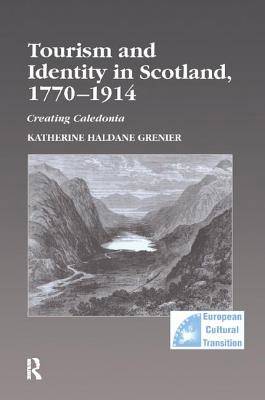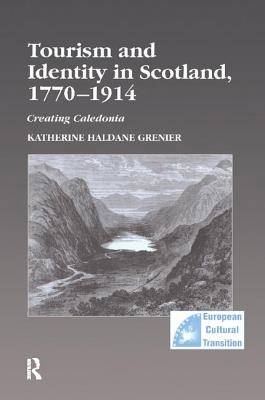
- Afhalen na 1 uur in een winkel met voorraad
- Gratis thuislevering in België vanaf € 30
- Ruim aanbod met 7 miljoen producten
- Afhalen na 1 uur in een winkel met voorraad
- Gratis thuislevering in België vanaf € 30
- Ruim aanbod met 7 miljoen producten
Zoeken
€ 63,95
+ 127 punten
Omschrijving
In the late eighteenth and nineteenth centuries, legions of English citizens headed north. Why and how did Scotland, once avoided by travelers, become a popular site for English tourists? In Tourism and Identity in Scotland, 1770-1914, Katherine Haldane Grenier uses published and unpublished travel accounts, guidebooks, and the popular press to examine the evolution of the idea of Scotland. Though her primary subject is the cultural significance of Scotland for English tourists, in demonstrating how this region came to occupy a central role in the Victorian imagination, Grenier also sheds light on middle-class popular culture, including anxieties over industrialization, urbanization, and political change; attitudes towards nature; nostalgia for the past; and racial and gender constructions of the "other." Late eighteenth-century visitors to Scotland may have lauded the momentum of modernization in Scotland, but as the pace of economic, social, and political transformations intensified in England during the nineteenth century, English tourists came to imagine their northern neighbor as a place immune to change. Grenier analyzes the rhetoric of tourism that allowed visitors to adopt a false view of Scotland as untouched by the several transformations of the nineteenth century, making journeys there antidotes to the uneasiness of modern life. While this view was pervasive in Victorian society and culture, and deeply marked the modern Scottish national identity, Grenier demonstrates that it was not hegemonic. Rather, the variety of ways that Scotland and the Scots spoke for themselves often challenged tourists' expectations.
Specificaties
Betrokkenen
- Auteur(s):
- Uitgeverij:
Inhoud
- Aantal bladzijden:
- 268
- Taal:
- Engels
- Reeks:
Eigenschappen
- Productcode (EAN):
- 9781138266377
- Verschijningsdatum:
- 16/05/2017
- Uitvoering:
- Paperback
- Formaat:
- Trade paperback (VS)
- Afmetingen:
- 156 mm x 233 mm
- Gewicht:
- 452 g

Alleen bij Standaard Boekhandel
+ 127 punten op je klantenkaart van Standaard Boekhandel
Beoordelingen
We publiceren alleen reviews die voldoen aan de voorwaarden voor reviews. Bekijk onze voorwaarden voor reviews.











